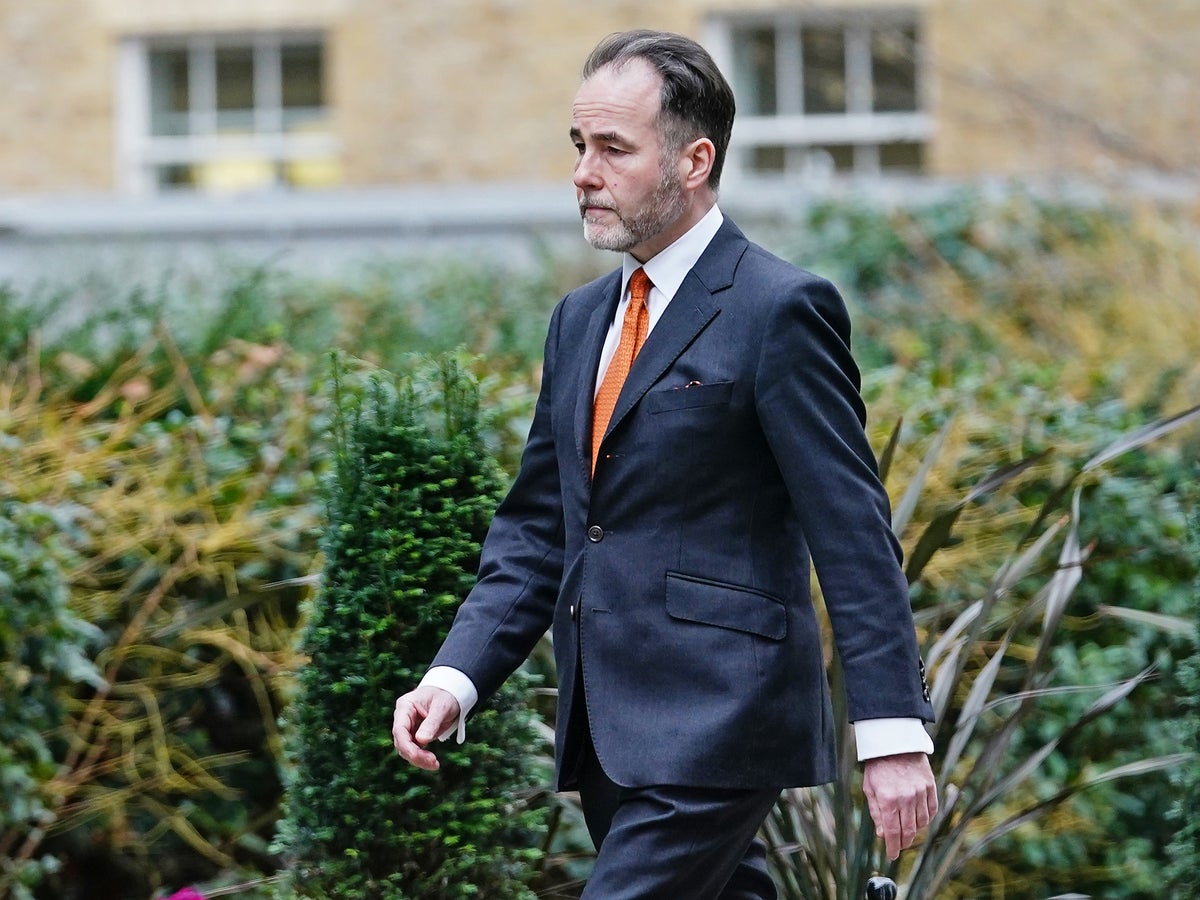Top universities commit to adapting teaching and assessment to incorporate the use of AI
 Get the free Morning Headlines email for news from our journalists around the worldSign up to our free Morning Headlines emailPlease enter a valid email addressPlease enter a valid email addressI would like to receive emails about offers, events and updates from The Independent. Read our privacy notice{{ #verifyErrors }}{{ message }}{{ /verifyErrors }}{{ ^verifyErrors }}An error has occurred. Please try again later{{ /verifyErrors }}
Get the free Morning Headlines email for news from our journalists around the worldSign up to our free Morning Headlines emailPlease enter a valid email addressPlease enter a valid email addressI would like to receive emails about offers, events and updates from The Independent. Read our privacy notice{{ #verifyErrors }}{{ message }}{{ /verifyErrors }}{{ ^verifyErrors }}An error has occurred. Please try again later{{ /verifyErrors }}
Universities will adapt teaching and assessment for students to incorporate the "ethical" use of generative artificial intelligence, leading institutions have said.< /p>
The Russell Group, which includes several of the most selective universities in the UK, has published a set of principles to help universities take advantage of the opportunities that artificial intelligence (AI) offers education.
The statement, backed by the Vice-Chancellors of the 24 Russell Group universities, hopes to support the ethical and responsible use of software like ChatGPT while ensuring that academic integrity is upheld .
ChatGPT is a form of generative AI that can answer questions in a human way and understand the context of follow-up queries, much like in human conversations, as well as being able to write essays if requested - sparking fears it could be used by students to complete assignments.
But the Russell Group's statement suggests that integrating generative AI tools into the teaching and assessments "has the potential to enhance students' learning experience, improve critical reasoning skills, and prepare students for real-world applications" of generative AI technologies.
< p> It stated: "All staff who support student learning should be empowered to design teaching sessions, materials, and assessments that incorporate the creative use of generative AI tools, where appropriate. "The principles were published after Education Secretary Gillian Keegan launched a call for evidence last month on how generative AI could be used "safely and securely" in educational institutions.
This came after the UK's main examination boards suggested in March that schools should ensure that pupils do part of their lessons "in class under direct supervision" amid fears of cheating in the context of the use of AI.
All Russell Group universities have reviewed their academic conduct policies to reflect the emergence of the 'Generative AI and these policies make it clear to students when its use is "inappropriate", according to the statement.
"Ensuring academic integrity and the ethical use of generative AI can also be achieved by cultivating an environment where students can ask questions about specific cases of their use and discuss associated challenges openly and without fear of penalization,” he said.
Professor Andrew Brass, Director of the School of Health Sciences at the University of Manchester, ...

 Get the free Morning Headlines email for news from our journalists around the worldSign up to our free Morning Headlines emailPlease enter a valid email addressPlease enter a valid email addressI would like to receive emails about offers, events and updates from The Independent. Read our privacy notice{{ #verifyErrors }}{{ message }}{{ /verifyErrors }}{{ ^verifyErrors }}An error has occurred. Please try again later{{ /verifyErrors }}
Get the free Morning Headlines email for news from our journalists around the worldSign up to our free Morning Headlines emailPlease enter a valid email addressPlease enter a valid email addressI would like to receive emails about offers, events and updates from The Independent. Read our privacy notice{{ #verifyErrors }}{{ message }}{{ /verifyErrors }}{{ ^verifyErrors }}An error has occurred. Please try again later{{ /verifyErrors }}Universities will adapt teaching and assessment for students to incorporate the "ethical" use of generative artificial intelligence, leading institutions have said.< /p>
The Russell Group, which includes several of the most selective universities in the UK, has published a set of principles to help universities take advantage of the opportunities that artificial intelligence (AI) offers education.
The statement, backed by the Vice-Chancellors of the 24 Russell Group universities, hopes to support the ethical and responsible use of software like ChatGPT while ensuring that academic integrity is upheld .
ChatGPT is a form of generative AI that can answer questions in a human way and understand the context of follow-up queries, much like in human conversations, as well as being able to write essays if requested - sparking fears it could be used by students to complete assignments.
But the Russell Group's statement suggests that integrating generative AI tools into the teaching and assessments "has the potential to enhance students' learning experience, improve critical reasoning skills, and prepare students for real-world applications" of generative AI technologies.
< p> It stated: "All staff who support student learning should be empowered to design teaching sessions, materials, and assessments that incorporate the creative use of generative AI tools, where appropriate. "The principles were published after Education Secretary Gillian Keegan launched a call for evidence last month on how generative AI could be used "safely and securely" in educational institutions.
This came after the UK's main examination boards suggested in March that schools should ensure that pupils do part of their lessons "in class under direct supervision" amid fears of cheating in the context of the use of AI.
All Russell Group universities have reviewed their academic conduct policies to reflect the emergence of the 'Generative AI and these policies make it clear to students when its use is "inappropriate", according to the statement.
"Ensuring academic integrity and the ethical use of generative AI can also be achieved by cultivating an environment where students can ask questions about specific cases of their use and discuss associated challenges openly and without fear of penalization,” he said.
Professor Andrew Brass, Director of the School of Health Sciences at the University of Manchester, ...
What's Your Reaction?















![Three of ID's top PR executives quit ad firm Powerhouse [EXCLUSIVE]](https://variety.com/wp-content/uploads/2023/02/ID-PR-Logo.jpg?#)







